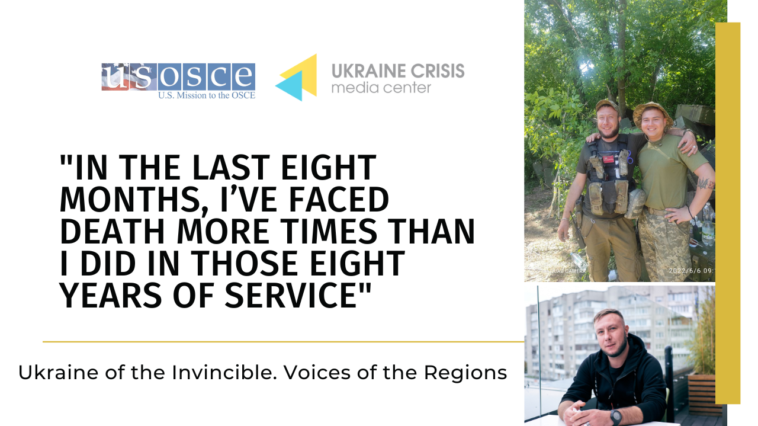If artillerymen are gods of war, medics are guardian angels. Their task is not to beat the enemy, but to save their soldiers. Taras Samchuk from Lutsk agreed to tell us how it happens in real conditions. He is a doctor of the 14th separate mechanized brigade named after Prince Volodymyr the Great. His duty is to help, come what may. Accordingly, his nickname is Citramon.
He’s been at war since 2014 and has saved thousands of lives. He left the service for less than a year to finish his studies at the military department and get the rank of officer, but he returned to the front in February. According to the Presidential Decree, Taras Samchuk was awarded the Order For Courage Grade III.
Here is his firsthand account. This is not just reported speech. It is frank, harsh, sometimes shocking. You wonder how he could get through it, if it is hard to even read it.
UPA has never been abolished
I don’t have an office. I can’t sit at a desk. I’m in the field. I am the head of the medical station. It is a doctor’s position. There are also paramedics, drivers, orderlies, and combat medics at the front. The latter are people without a medical degree who take a three-month course in tactical medicine.
They are on the front line with the units, provide first aid, evacuate the wounded from the red zone, where there is shelling, to the conditional yellow zone – the battlefield, where there is no fire, or to a shelter.
There we provide medical care to the wounded and transfer them to the green zone – hospitals, transfer points, medical and nursing brigades (MNBs). It depends on the situation and the place where we work.
Our main task is to stabilize the wounded, anesthetize, inject a hemostatic agent, and bandage the wounds. If a tourniquet was applied, we check its correctness and apply another one if necessary.
There are a number of other medical manipulations on this list. Soldiers have many different wounds. Every day you do something different. Besides, I am financially responsible for first-aid kits and medicines.
Life and the speed of recovery from an injury depend on the quality of first aid. By the way, all our soldiers know how to provide first aid.
Traumatic limb amputations and penetrating shrapnel wounds are the most common. I have been at war since 2014. There have been dozens of such cases during my entire service, and hundreds in the last eight months. It’s because of large-scale battles and the fact that the Russians do not follow the rules of warfare.
Sometimes, I get into an armored car and drive. There is no such thing as me being 100% on the home front, in the yellow zone or on the front line. People get sick on the home front, too. Apart from this, there’s a lot of administrative work.
UPA – the Ukrainian paper army – has never been abolished. It is ridiculous, but in the 21st century there is all this unnecessary writing and you have to keep a lot of journals. Plus, you have to preserve all this in field conditions. As if rain or snow does not fall on us.
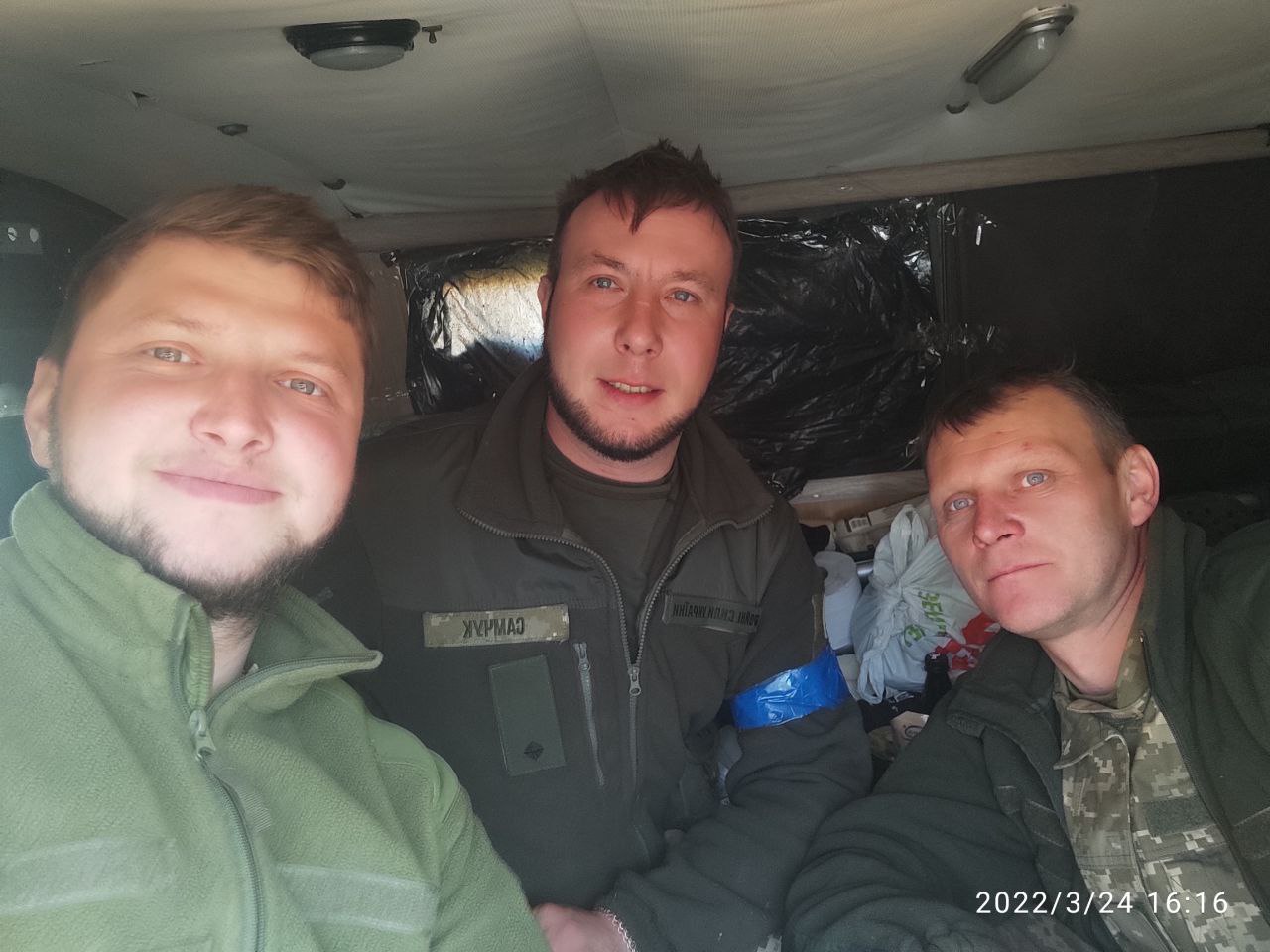
People don’t always notice the work of medics
Sometimes we had to evacuate 6-8 wounded at a time. It’s very difficult. There is not much room in a car. Priority is given to the seriously wounded. We take them first. We ride squashed like sardines. And you have to bandage this one, inject that one, listen to another one…
Everyone needs attention. I am often asked how I choose who to help first. I give an example: “Have you been to the country? Have you seen a swallow’s nest? A bird brought an insect. Eight yellow mouths are waiting for her. And she knows who to give first. How?” It’s the same with the wounded. First, you help those who need it most.
When a tanker destroys enemy tanks, you can see it. We have great artillerymen, infantrymen… But people don’t always notice the work of medics. People don’t realize how much effort you put into saving a life. They don’t see how much thought goes into making things faster and better.
I pass people’s pain through me. Why don’t I like to talk about it? Because when I recall, it hurts. I’ve had thousands of wounded. My arms, legs, back, neck, head hurt because of them. Everyone is thirsty, and you know they shouldn’t drink. You dose that water, you invent something… It’s tough.
It hurts most for the young. Many of them have serious injuries. It depends on them what they will be later: whether they will pull themselves together and start living normally, or whether they will put their head in a noose.
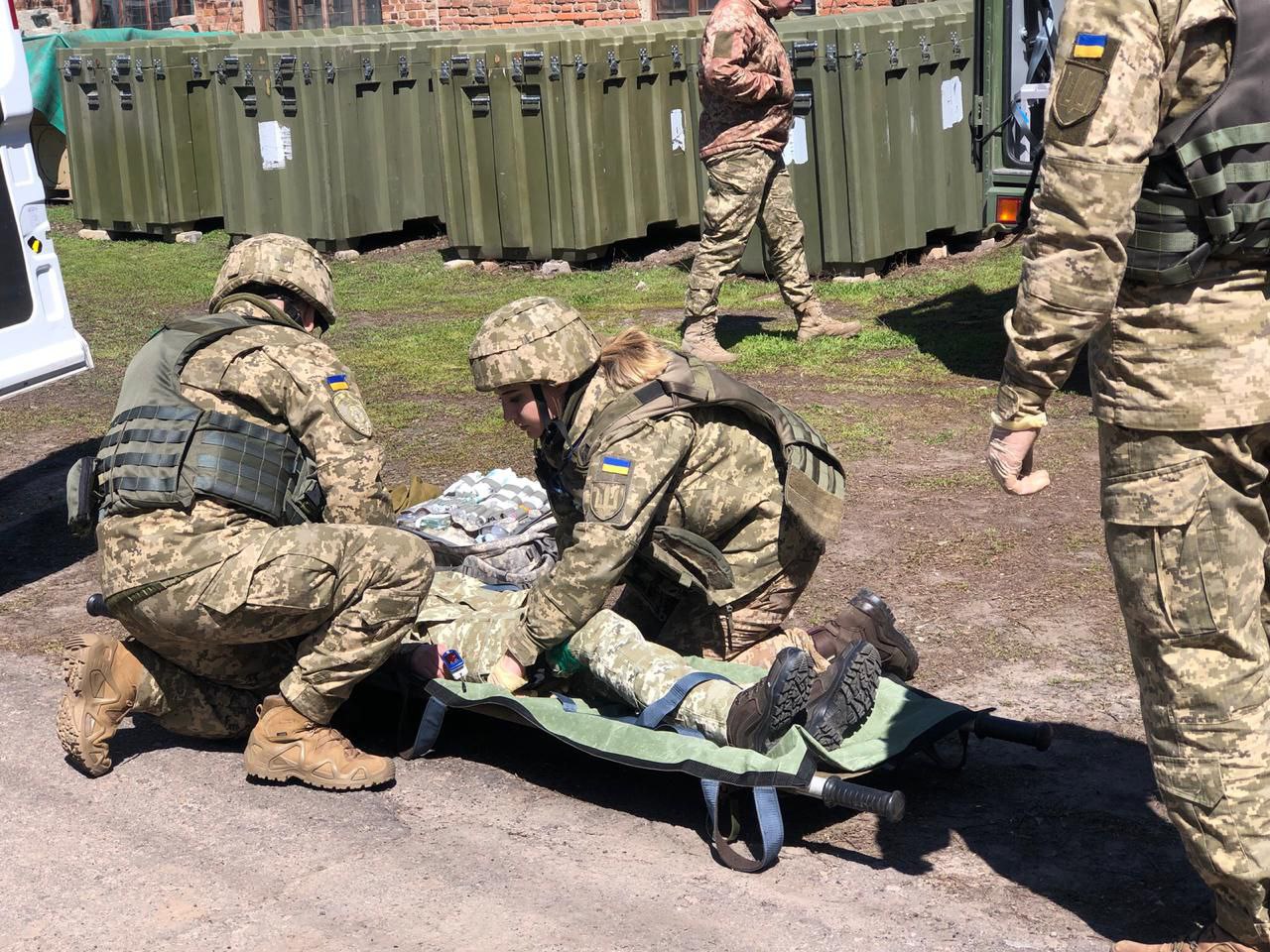
Russians see that we are taking away our soldiers’ bodies and open artillery fire
Servicemen are thrown off balance from what they see in the war. Although there are officers-psychologists, it is not so easy to work with people who have seen destruction, trouble, and death of their friends. Now we are drinking coffee, and in an hour one is dead, the other is dead, because it has come.
Shelling tears people. Sometimes a plastic bag of remains is everything left of a person… Guys collect their fellows on the battlefield. It’s tough. Everyone has a psychological core – some are stronger, some are weaker.
We never abandon our comrades. If there is an opportunity, we take everyone out. The priority is the wounded. But it happened more than once when we took away the dead. We put them into black bags and take them to the morgue. There were cases when rearguards brought ammunition, food, and water to the front line, and on the way back they took away bodies.
There are cases when Russian beasts do not allow us to take a body away for a long time. Their drone flies and they see our soldiers collecting the dead. And they open artillery fire. Once they hit the bags with bodies. They were torn up, twisted. Twice two hundredth…
But Russians don’t take their bodies away. And they try to burn in mobile crematoria those who were taken away, because they hide their losses. You know, like frogs: when you step on them, they dry up. They become like stockfish. They have lots of stockfish. I call them ikebana. No one needs them.
“I know when a person is sure to die”
Everything takes time. One gets used to everything over time. My current driver said after the first trips: “I wanted to throw up so often. A few more times and I’ll get used… Taras Olehovych, I’ll get used to it.”
The same thing happens to medics who see serious injuries for the first time. Stupor. Sometimes 15 seconds, sometimes longer. It’s when you know WHAT to do, but you’re numb. I once went through it myself and saw my young colleagues experience it. Sleep helps to reset. I don’t mean sleep during evacuation, 2-3 hours a day but normal, 7-8 hours. Sometimes, I see nightmares. People tell me later how I slept.
In eight years of service, I’ve learned to understand when death is inevitable. When a person, like a candle, will soon go out. There were no cases when I did not know what to do. There were situations when I knew a person was going to die, no matter what I did. However, I always do everything to save life. But I know that he’ll be gone… This is the most difficult thing. There were soldiers with very serious injuries who survived. You can see who will live and who will not. I don’t know how to explain it – experience, practice, intuition.
There are no bad tourniquets, there are badly made hands
I cannot say that we are not provided with something. My unit is provided with everything. Volunteers help a lot, but the state also allocates a lot. We have CAT tourniquets, while muscovites still have old Esmarch bandages. There is nothing to complain about.
They’ve brought all kinds of tourniquets to us. Homemade too. There are people who criticize them and say they are badly made. It’s just that someone’s hands are badly made. I repeatedly showed how to apply a tourniquet that they consider useless. There is an overlapping technique. You must do everything correctly.
Our priority is, of course, the military, but if there is a lull and local people turn to us, we help them. There are no hospitals, no clinics and no first-aid stations in front-line towns and villages. Ambulances do not run there. But there are old people there. There is no one to lower blood pressure, to help in case of poisoning.
People who have been injured by shelling and need bandages come most often. One of the last such patients was a woman who neglected safety. She went to feed the chickens and came under artillery fire. She had a large gash on her leg. We helped her and sent her to an evacuation point with subsequent hospitalization.
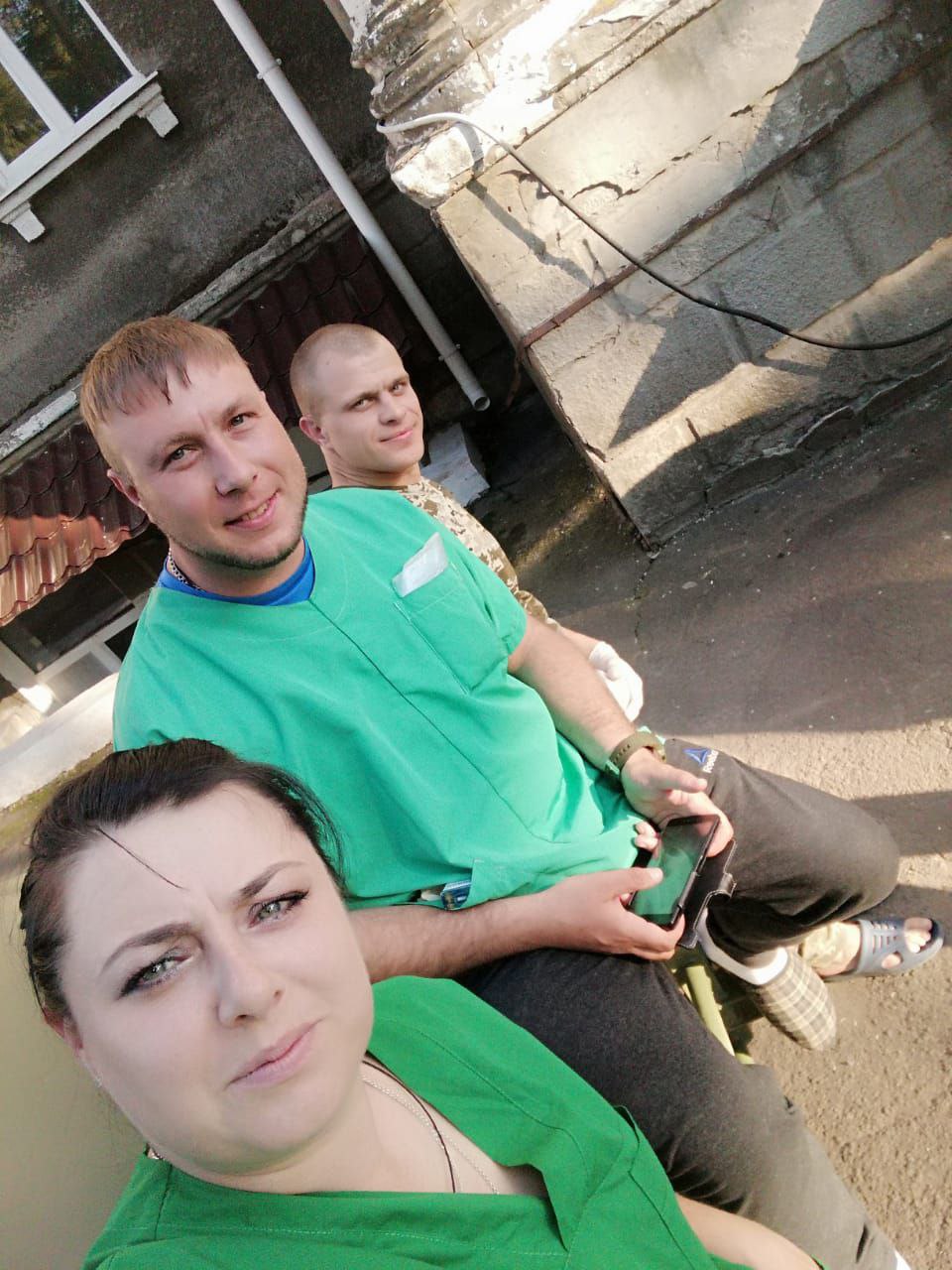
We know what we are fighting for, but the Russians do not
Losing loved ones is the hardest thing. When my brother died, the most difficult thing was to tell his family. This is not the competence of medics, but he served in my unit. I had to say. When I came home a few months later, I did not look my brother’s wife and kids in the eye. It felt as if I had not saved him. He is three years older, but I am senior in the army. My heart aches for my brother, his wife, and his kids.
The war has changed me. I began to appreciate my life and family more. I used to enjoy myself and get pleasure from life. But now the values are different. When you understand that everything may end in a second, you want to live, enjoy life.
One thing motivates me: I want free Ukraine. So that no one dictates to Ukrainians what to do. If I stayed at home and did nothing, if all soldiers thought like that, the Russians would have come to Volyn. I would have been killed. I am a combat veteran. Eight years at war. They kill such people first.
It is better to defend our land and show that we are strong. We have it in our nature that “we will lay down our soul and body for our freedom.” In the last eight months, I’ve faced death more times than I did in those eight years of service. But I’m in my place. Even if I die, I know that I have done a lot for Ukraine.
We will overcome them! It will be easier for us with the newly mobilized. We gave professional soldiers a hard time, and these are untrained. First of all, they overlooked the fact that we had spent eight years studying, training and know how to fight. Secondly, we are on our own land. We know what we are fighting for. They do not.
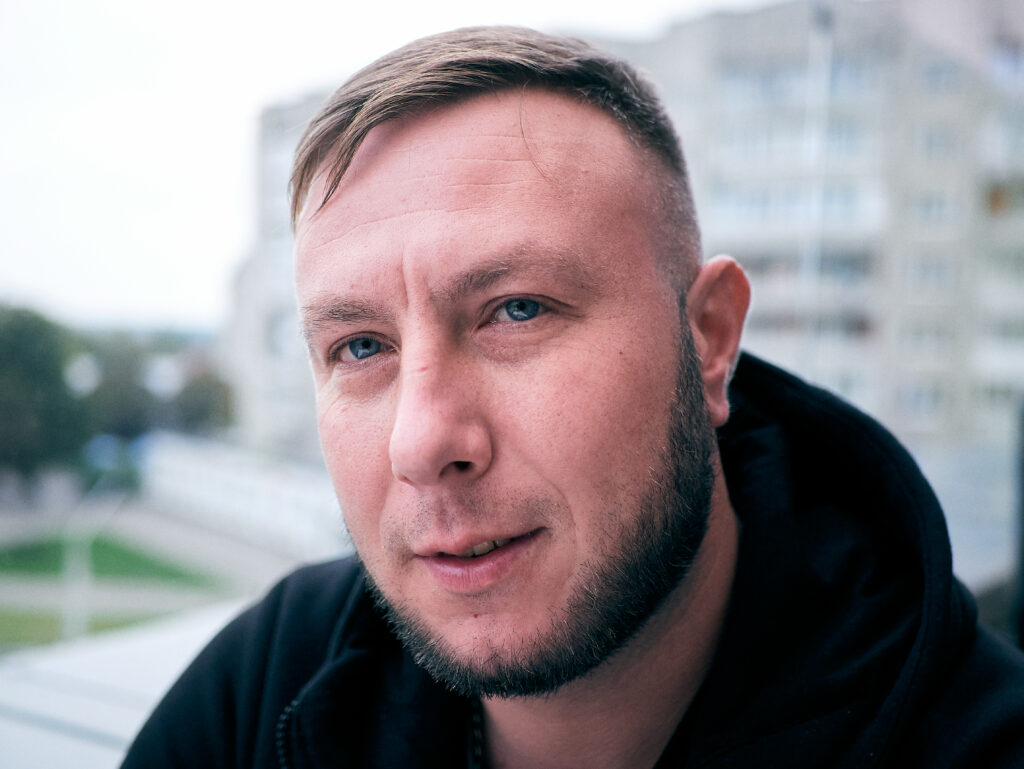
Photo: Liudmyla Herasimyuk and from Taras Samchuk’s archive
Natalya Khvesyk
4.11.2022

